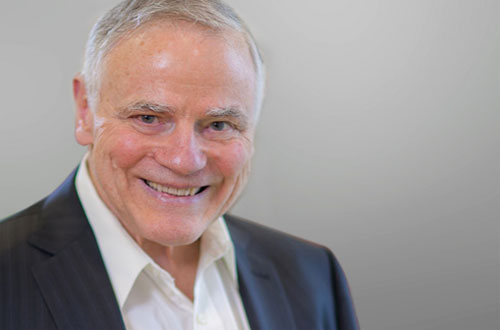
Dr Leroy Hood has been involved in genetic research since the 1960s
People who would choose to opt out of genetic sequencing to assess their risk of disease are like “an ostrich sticking its head in the sand”, according to a leading genetic scientist.
Dr Leroy Hood, who helped develop the automated DNA sequencers that made genome sequencing possible, made the comments to PMLiVE at the recent Astellas Innovation Debate in London, where a panel of experts discussed the future of personalised medicine and digital health.
Discussing the topic with PMLiVE before the debate, Dr Hood said people should know what their “genetic potential is and be prepared to act upon it when it becomes actionable”.
“Just saying that you don’t know what is coming down the stream and therefore you aren’t be able to respond appropriately I think is an unfortunate attitude,” added Dr Hood, who was also involved in the development of the DNA synthesisers, protein sequencers and peptide synthesisers that paved the way for the mapping of the genome.
The debate on gene sequencing comes at a crucial time, with Dr Hood predicting that the price to sequence a genome, and therefore assess a person’s potential to develop diseases such as diabetes, cancer and rare diseases, will fall to $100 in five to eight years, allowing it to become part of routine care.
However, there are concerns among many healthcare stakeholders who suggest that such tests could open up the public to higher levels of anxiety and unnecessary interventions.
To coincide with the debate Astellas released data from a survey of 2,000 people in the UK on the issue of genetic testing.
Two thirds (66%) of survey respondents said they would want to know whether they had a risk of developing a serious illness, such as cancer, if genetic testing were available for free on the NHS.
Over half of women (56%) would consider a double mastectomy if they discovered they were at risk of developing breast cancer – a possibility that was brought to public attention by Angeline Jolie after doctors diagnosed her as having the BRCA genetic mutation.
Reasons for people to be concerned about genetic testing included the fear of being left feeling anxious or depressed (40%) or finding out something unpleasant about a disease they might contract in the future (38%). People were also worried that test results may make it more difficult to get life insurance or a mortgage (30%) or face discrimination at work (26%).
Astellas also discovered that healthcare professionals were cautious about gene sequencing. Of 300 GPs surveyed 79% said they feared that wider genetic testing would lead to unnecessary anxiety for patients, who might worry they are more prone to certain illness and disease and only one third would welcome the wider availability of genetic testing in the NHS.
There is increasing momentum to use genomic sequencing as part of routine care, however, with NHS England currently involved in a project to sequence the genomes of 100,000 people with cancer and rare diseases.
The UK’s minister for life sciences George Freeman is behind the move too announcing at the Innovation Debate that the country must embrace genomic medicine or “risk condemning ourselves to a slow lane of dark age medicine”.
Dr Hood is also embracing the idea and is involved in a project to assess the genomes of 100,000 ‘well’ people in the US in order to recommended actions they can take to reduce the risk of certain diseases they are more genetically inclined to develop.




